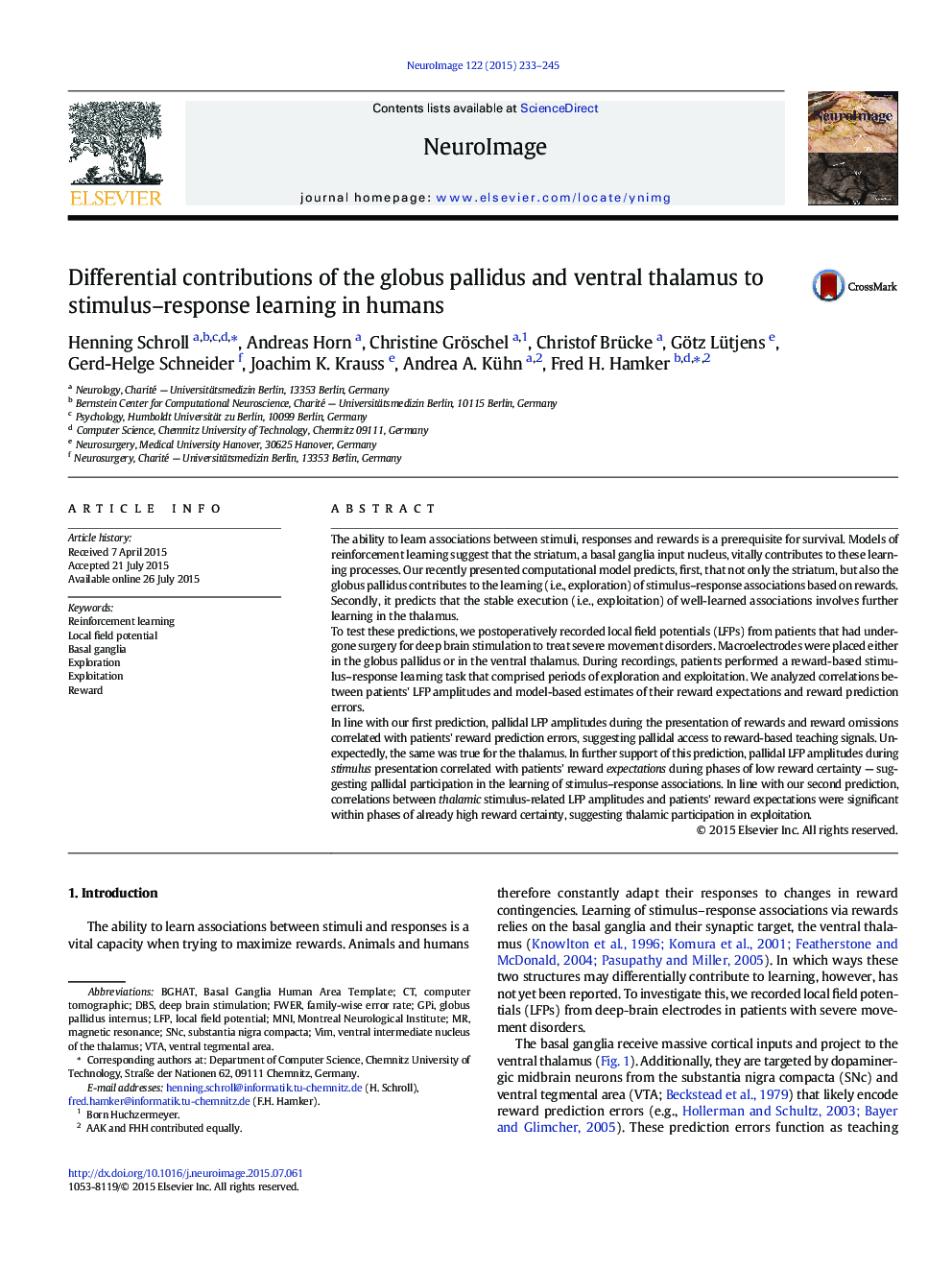| Article ID | Journal | Published Year | Pages | File Type |
|---|---|---|---|---|
| 6024668 | NeuroImage | 2015 | 13 Pages |
Abstract
In line with our first prediction, pallidal LFP amplitudes during the presentation of rewards and reward omissions correlated with patients' reward prediction errors, suggesting pallidal access to reward-based teaching signals. Unexpectedly, the same was true for the thalamus. In further support of this prediction, pallidal LFP amplitudes during stimulus presentation correlated with patients' reward expectations during phases of low reward certainty - suggesting pallidal participation in the learning of stimulus-response associations. In line with our second prediction, correlations between thalamic stimulus-related LFP amplitudes and patients' reward expectations were significant within phases of already high reward certainty, suggesting thalamic participation in exploitation.
Related Topics
Life Sciences
Neuroscience
Cognitive Neuroscience
Authors
Henning Schroll, Andreas Horn, Christine Gröschel, Christof Brücke, Götz Lütjens, Gerd-Helge Schneider, Joachim K. Krauss, Andrea A. Kühn, Fred H. Hamker,
